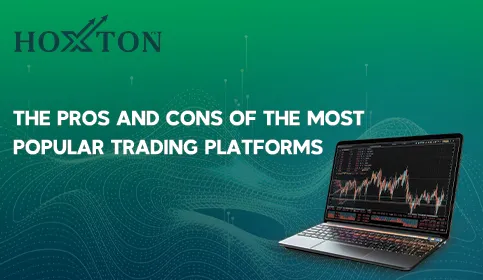In the fast-paced world of online trading, choosing the right platform is very important for success. The best trading platforms act as the bridge between you and the financial markets. Whether you’re just starting or have years of experience, the platform you choose can greatly influence your experience in trading.
Today, in this article, we’ll take a closer look at some of the most popular trading platforms available today. We’ll explore their pros and cons to help you understand which features matter most, and how to choose a platform that aligns with your needs and goals.
What Makes a Best Trading Platforms for Your Needs?
The following key factors make the best trading platform for your needs.
- First and foremost, user experience plays an important role. A platform that is easy to navigate can make a world of possibilities, especially for beginners who are afraid of complex features.
- Beyond that, the fees and commissions associated with trading can significantly impact your profit, so it is necessary to select a platform with transparent and competitive pricing.
- The tools offered by a platform also matter – whether it’s advanced charting features, risk management tools, or access to a wide range of assets, these resources can greatly enhance your ability to make informed decisions.
- Additionally, different platforms cater to varying levels of experience. Beginners might prioritize platforms that offer intuitive interfaces, educational resources, and demo accounts, while more experienced traders may look for platforms with advanced trading tools and deeper market analysis.
Ultimately, the best platform is one that aligns with your individual goals and trading style, offering the right balance of ease of use, cost-effectiveness, and powerful features.
Trading Platforms Comparison: How to Choose the Right One?
When comparing trading platforms, it’s crucial to consider several factors to ensure you’re selecting the right one according to your needs.
- First, take a close look at the fees and commissions, as these can eat up your profits with the passage of time. Some platforms offer low or no fees for certain types of trades, while others may charge a fixed rate or a percentage, depending on the asset class.
- Next, consider the available assets. Some platforms focus primarily on stocks, while others may provide access to forex, cryptocurrencies, or commodities. Make sure the platform supports the markets you’re interested in trading.
- Security features are another key aspect—look for platforms with high quality encryption and multi-factor authentication to protect your funds and personal information.
- Lastly, customer support is vital, especially if you’re new to online trading. Platforms that provide accessible and responsive support can make all the difference, ensuring you get timely help when needed.
By considering these factors, you’ll be in a better position to choose a platform that aligns with your trading goals.
Pros and Cons of Trading Platforms
All trading platforms are not the same. Some offer sleek, beginner-friendly dashboards, while others pack in high-end tools for those who’ve been in the game a while. Here’s a balanced look at what works (and what doesn’t) across some of the most popular platforms.
- Ease of Use for Beginners
Pro: Beginner-friendly platforms offer simple layouts and guided steps that make start-up easy.
Con: Too much simplicity can limit access to opportunities that help you grow beyond the basics.
- Access to Advanced Tools for Experienced Traders
Pro: Advanced platforms provide in-depth charts, data, and tools that support strategic decisions.
Con: The complexity can be overwhelming and time-consuming for those not already experienced.
- Costs and Fees
Pro: Some platforms offer commission-free trade and competitive pricing for active users.
Con: Hidden fees or unclear cost structures can eat your profits without being clear.
- Available Educational Resources and Support
Pro: Quality platforms offer tutorials, webinars, and responsive support to guide users.
Con: Limited or generic educational tools can leave users without the help they actually need.
Top Trading Platforms for Beginners
When you’re just starting out the trading, the right platform can make all the difference. The top trading platforms for beginners are those that focus on simplicity, guidance, and a gentle learning curve. For example, platforms like eToro and Webull.
They are popular among new traders due to their clean interfaces and feature of demo accounts—allowing users to practice without risking real money. They also offer a wealth of educational content, from video tutorials to step-by-step guides, which are very helpful for beginners to demystify the process.
Another noteworthy mention is HoxtonFX LTD Company, which has been gaining attention due to its beginner-friendly approach. It offers a clear dashboard, advanced tools to manage risks, and dedicated support for users who are still finding their feet.
These platforms don’t just let you dive in—they help you to understand what you’re doing, which is key when you’re navigating your first few steps in the market.
Conclusion
Choosing the right platform is more than just picking a business name—it’s about finding a place that fulfils your future goals, needs and enhances your skills. As you weigh the pros and cons of today’s most popular platforms, focus on what matters most to you.
Whether you’re just starting out or looking to level up, platforms like HoxtonFX LTD are making the journey smoother with beginner-friendly features and dedicated support. In the end, the best platform is the one that helps you grow confidently and consistently.







